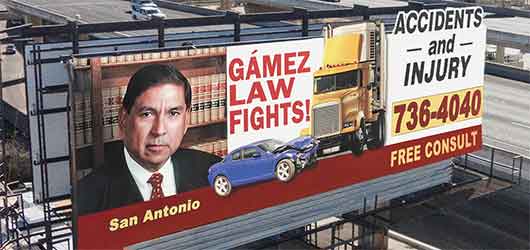Navigating Texas roadways can be challenging and stressful. Even if you’re an experienced and cautious driver, if you’re sharing the road with someone distracted at the wheel, intoxicated or reckless, you’re in great danger. If a collision occurs, it’s best to seek medical attention and to monitor your health during your recovery. If the symptoms mentioned in this blog post arise, it is possible that you have suffered a brain injury.
Brain injury symptoms are sometimes immediately apparent, such as if you are unconscious upon impact in a collision. However, it might take hours or even days for symptoms to occur, in which case you’ll want to return to the hospital or call your primary care physician right away. A brain injury can become a life-threatening situation.
Experiencing these symptoms after a collision suggests brain trauma
As mentioned earlier, if you’re unconscious in the immediate aftermath of a collision, you’ve obviously suffered a brain injury. There are times, however, when symptoms might seem a bit obscure, such as those included in the following list:
- Drastic change in personality, including severe irritability or aggressiveness
- Vomiting, especially multiple times
- Weak pulse or shallow breathing
- Difficulty staying awake or rousing from sleep
- Slurred speech
If these symptoms occur, it is imperative to seek medical attention because they are signs of a severe brain injury. You might have swelling or bleeding internally or could have a skull fracture.
What if the recovering victim is an infant or young child?
Children are not always able to convey their feelings verbally. If a child was in your vehicle when an accident occurred, and he or she experiences these symptoms, it suggests a possible brain injury:
- Inconsolable crying
- Refusing to nurse at the breast or eat solid food (if old enough to do so)
- Bruises, indentations or abnormal shape on the head
In addition to these symptoms, a child might experience one or more of the symptoms listed on the previous list for adults, as well. If your child presents these symptoms, consider it an urgent medical situation.
Tests available to diagnose brain injuries
If you or your child obtains medical care for a possible brain injury, the attending physician might order a brain scan. There are also tests that evaluate brain function, such as cognitive ability. Depending on the severity of your injury, a doctor may release you with instructions for at-home care, or you might have to stay in the hospital.
When a Texas driver’s negligence was responsible for a collision that resulted in a brain injury, the victim may seek justice by filing a personal injury claim in civil court. The key to winning this type of case is to gather as much evidence as possible to prove the elements of liability, which include demonstrating that the defendant owed a duty of care, failed to fulfill the duty and, because of his or her negligence, caused an otherwise preventable collision that resulted in your injuries.


